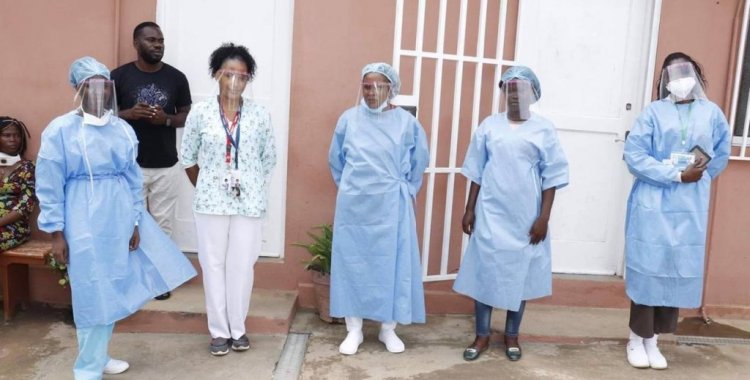Speaking to Lusa, Miguel Gonçalves, one of the project's mentors, said that the goal is to reach 100,000 visors, which will be distributed giving priority to covid-19 health units and treatment centers.
But the equipment will also be available to any citizen who makes a donation of at least 1200 kwanzas, enough to "offer" a donor visor and produce three others, according to Luís Querido, another volunteer from the visors-covid-ao group.
To this end, a telephone line was created, where interested parties can clarify doubts about visors and make requests for institutions or donations.
Luís Querido predicts that industrial production will start over the next two weeks, as soon as the injection mold needed to manufacture the visor support arrives, now with an improved and more comfortable design.
The visors will be produced in a factory that offered for this purpose, with the money from the donations being entirely channeled to the purchase of the raw material needed to manufacture the support, through a non-governmental organization associated with the project.
"We are going to import a ton of raw material," said Luís Querido, adding that the polypropylene to be used comes from Portugal.
As for 3D printers, they will stop producing visors but they will not stand still, said the volunteer.
The next step is to manufacture devices for medical accessories such as bifurcators for ventilators, "clamps" (springs) for orotracheal tubes or parts to attach the elastic of the masks and relieve the pressure of continued use on the ears.
With the expansion of production capacity, the group has also attracted more and more volunteers. At the moment, there are about 30 "active" volunteers to collaborate with the project from different parts of the world.
To maintain the free and voluntary nature of this civil society initiative and to avoid attempts at commercialization, all visors that are going to be produced industrially will have registered that the sale is prohibited, added Miguel Gonçalves.
In addition to hospitals, the group also intends to distribute visors through the National Institute of Medical Emergency of Angola (INEMA), firefighters, the National Police, the Red Cross, the World Health Organization and other entities whose professionals are more exposed to a possible contagion of the disease.







